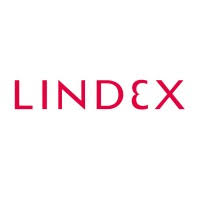Lindex has a vision to empower and inspire women everywhere. One step to fulfil our vision has been to recently launch Lindex Promise for future generations both internally and externally. When we were working on our promise and defining what matters the most, it became clear that we see us as accountable for Empowering Women, Respecting the Planet and Ensuring Human Rights. One of the goals under Empower women is by 2025, Lindex suppliers for commercial products should have completed our Women Empowerment Program and sustained the learnings Empower Women - this is where our Women Empowerment Program, which consist of WE Women project and HERhealth project, fits in and we are committed to taking the lead in creating fair and equal work places for women .In the WE Women project we will work to incorporate gender equality into factories management systems and create a more inclusive and healthy working environment for female workers in the factory.A gender plan will be produced by each factory and there they will explain how they will work to promote gender equality and non-discrimination together with focus on women´s health.The most important parts in the gender plans are Women´s health and workplace culture as is shown below:
Women´s health
- Create an enabling environment for women to make informed decisions about their reproductive health
- Improving the capacity of the workplace clinic
- Improving health related behaviour,
- Access to doctor and hospital.
- Linking workplaces with external service providers, hospitals and local clinics.
- Breast feeding facilities.
Workplace culture
Changing the workplace culture is an important area. The gender plan should include how to build a positive and gender equal culture in the factory. Not only create or improve policies on women´s health, discrimination and harassment but also to understand the impact and realities of these policies. Set supporting structures in place for women as leaders and other positions in the factories that are traditionally held by men. Encourage the strengthening and increasing of participation and engagement of women in social dialogue. In the project we also have community outreach in the form of a Women´s café. We run it together with a local organization called KarmojibiNari. Here we want to build confidence and communication skills around discussing important health issues at work and at home. For both men and women. We have also made a baseline survey of female work´s perception and understanding of gender equality in the café. In line with Lindex vision and Promise for future generations, stakeholder engagement plays an important part. With our holistic approach to women´s empowerment we want to share our knowledge and awareness with other organisations and brands. We have therefore reached out to other stakeholders with our project and offered them our knowledge and the use of our tools free of charge. We will continue to do so. We have also a new gender responsive Supplier Code of Conduct that applies to all Lindex business partners in our entire value chain. We have incorporated elements for WE Women in order to strengthen the gender perspective.
The WE Women project is now at a stage where the pilot with the first 11 factories is finished. We have started to roll out the program to our remaining 20 factories in Bangladesh and 5 factories in Myanmar. Totally, in Bangladesh and Myanmar, we have now reached 36 factories, total number or workers 78 000 and 46 000 are women. For HERhealth projects we have reached 20 factories and 20.000 women with education and training in basic nutrition and health issues in India, Bangladesh, Pakistan, China and Myanmar.







